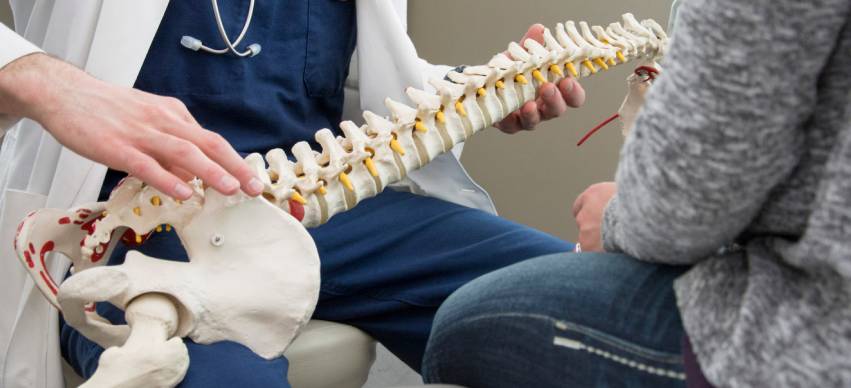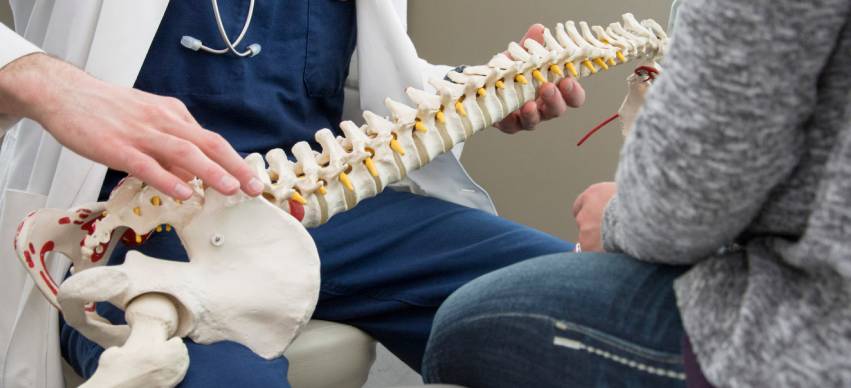Tips To Choose The Best Hospital Uniforms
6 Min Read


The spine, also known as the spinal cord or spinal column, is one of the most critical components of the human body, which, together with the brain, forms the central nervous system. Your spine's health plays a vital role in your daily life regardless of age because the spine helps sustain optimal mobility, among other essential bodily functions. Your spine enables you to sit, stand, bend, twist, or walk, among others.
Despite the spine playing a central role in the entire human body, it remains one of the most underrated body parts. An important point to note is that the spine is essential yet irreplaceable. Therefore, continuously striving for good spine health to the best of your ability is priceless. You should never take any concerns about the state of your spine lightly.
And since prevention is better than cure, consulting with spine specialists like Dickinson Neurosurgery at the earliest opportunity goes a long way in contributing to optimal spine health.
The spine starts from the neck and extends into the pelvis, connecting your musculoskeletal system. The base of the spine, also known as the sacrum, is found within the pelvis region from where it carries your entire body weight. The spine also has a tailbone called the coccyx, which enables you to sit. The sacrum and coccyx are fused to form the lowest part of the vertebrae, which is mainly immobile.
The spinal column is made up of three distinct parts that have 33 essential vertebrae in total. The vertebrae are protected by rubbery pads called intervertebral discs. These discs prevent the bones in the spinal cord from grinding against each other.
Below are the different parts of the spinal column and their functions:
It's made up of the first seven vertebrae comprising seven nerve roots (C1-C7) of the spine found in the neck, between the skull base and the shoulder level of the upper back. The cervical spine allows the neck to move in different directions through its delicate yet hardy network of bones, nerves, ligaments, tendons, and muscles.
The cervical spine performs several critical functions, including:
The back is the longest and most complex part of the spine. It has 12 vertebrae with 12 nerve roots (T1-T12) that connect the neck and the lower back. The thoracic spine starts from the base of the neck and runs into the abdomen, where it attaches to the rib cage.

The primary functions of the thoracic spine include:
The lower back starts right below the end of the thoracic spine and comprises five vertebrae with five nerve roots (L1-L5). The lumbar spine ends at the top of the sacrum.
The lumbar spine's function includes:
Most people consider back pain a significant indicator of a problem with the spine. However, since the spinal column is part of the central nervous system that sends nerve signals to the whole body, spinal defects and injuries can produce a myriad of obvious and not so symptoms, including back pain.
Various circumstances can result in spinal defects. They include degenerative or congenital issues, ruptured or herniated discs, car crash injuries, aging, and health conditions like arthritis. Since it's challenging to tell when symptoms are associated with a condition affecting the spine or not, it's advisable to visit a spine specialist if you experience any of the following:
Conditions like osteoporosis and osteoarthritis cause the protective cartilage around intervertebral discs to wear down, leading to persistent back and neck pain. This pain is often caused by inflammation when the bones in the spine rub against each other. Various health conditions and injuries can also cause persistent back pain. Back and neck pain can also originate from different parts of the body apart from the spine.
A spine specialist is best placed to evaluate the causes of your back or neck pain and to prescribe appropriate treatment options.
Continuous tingling or numbness in your legs or feet might indicate an ongoing spinal condition, such as a pinched nerve, implying the need to see a spine specialist. In extreme cases, such as when tingling is accompanied by persistent back pain that persists, it could point to a more serious spinal condition that needs the attention of a spine specialist.
If you start experiencing pain or difficulties when engaging in activities you previously did with relative ease, such as bending, twisting, or walking, it’s best to see a spine specialist. You might be in the early stages of a medical condition whose treatment outcomes may be better when caught early.
The loss of bladder or bowel control often indicates damaged nerves in the back or spinal column and a communication breakdown between the signals sent from the brain to the body. Bladder or bowel dysfunction requires an urgent appointment with a spine specialist.
If you're losing grip or are unable to perform routine tasks using your hands, such as pouring a cup of coffee, buttoning your shirts, or writing, you might have a spinal condition. A spine specialist is best placed to get to the root of your symptoms.
Your spine health impacts your life considerably, making good spine care integral. As such, it's critical to understand the warning signs of spinal defects that can lead to long-term chronic conditions, including incapacitation, if not attended to promptly.
If you or a loved one has been experiencing any of the above symptoms, you must urgently schedule an appointment with a spine specialist. Getting a professional evaluation and diagnosis increases the chances of successful treatment outcomes.